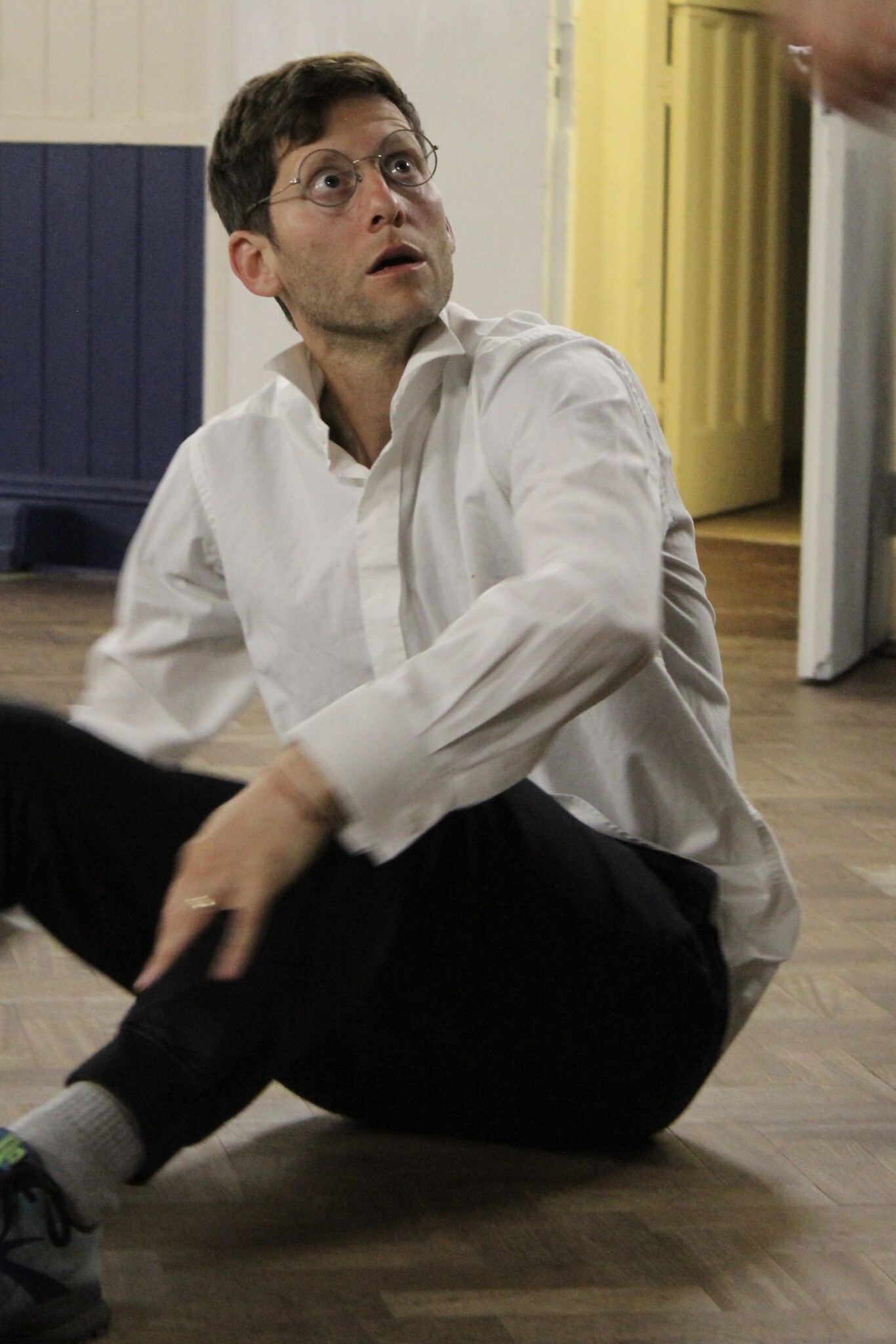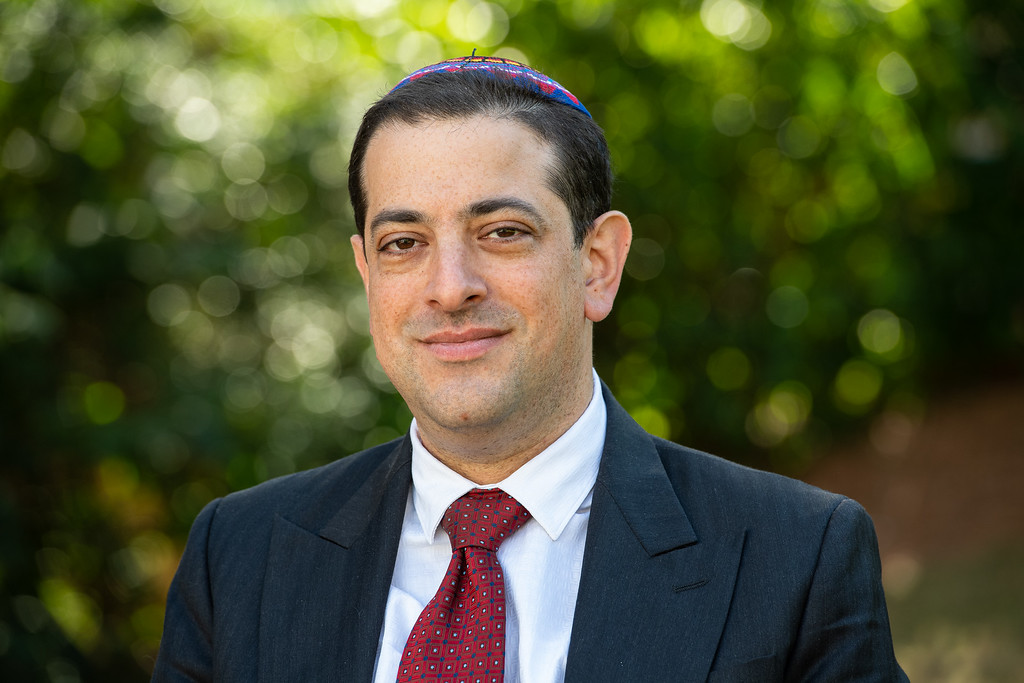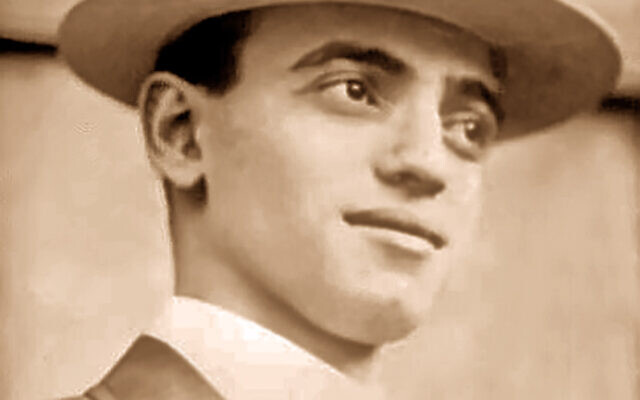OPINION: Authenticity isn’t a box-ticking exercise – it honours cultural nuance
Amid the "JewFace" controversy, Rabbi Alex Goldberg explores Israeli actor Yuval Shwartsman's performance as Leo Frank in the musical 'Parade'
In our rapidly evolving media-saturated age, the demand for authentic representation in film, television, and theatre has intensified. Debates surrounding “JewFace”—a term highlighting the issue of casting non-Jewish actors in quintessential Jewish roles—have grown particularly heated.
Amid these discussions, it’s crucial to understand why authenticity is pivotal in representation. Authenticity isn’t a mere box-ticking exercise; it’s about capturing the essence, emotions, and lived experiences of a community.
To delve into this nuanced topic, I spoke with Yuval Shwartsman, an Israeli actor who is masterfully portrays Leo Frank on stage in the renowned musical “Parade.”
The story of Leo Frank, unjustly accused of a young girl’s murder in 1913 Georgia, is a stark reflection of the deep-seated anti-Semitic sentiments prevalent in the American South. It’s not just a tale of one man’s ordeal; it reflects a societal attitude steeped in prejudice.

Shwartsman’s depiction transcends mere characterization, adding layers of authenticity. He taps into the rich fabric of Jewish history and culture, giving Leo’s role a depth that deeply resonates with audiences. The story, saturated with sensationalism and reflective of the era’s prevalent anti-Semitism, mirrors many of today’s societal issues. The subsequent rise of the Ku Klux Klan and the birth of the Anti-Defamation League serve as potent reminders of the lasting impact of such events.
How, then, does Shwartsman, with his deep-rooted Jewish heritage, relate to the tangible anti-Semitism Frank experienced? “Being raised Jewish, especially in Israel, grants a unique viewpoint,” Yuval shared. “Our shared history, intertwined with my family’s tales from Moldova up until the 1970s and my personal experiences, offers me a rich understanding.”

The Guildford School of Acting (GSA) has become a magnet for Israeli actors keen to hone their skills. Shachar Shamai, the visionary behind Jewish Cabaret, brilliantly fuses humor and music to explore and uplift Jewish identity, highlighting its diverse facets. Similarly, Michael Einav’s “Audition” series on YouTube humorously critiques deep-rooted casting stereotypes, exposing the entertainment industry’s inherent biases.
Another astute GSA alumna, whom I’ll refer to as ‘Rae’, drew attention to “Falsetto,” a West End production criticized for seemingly marginalizing authentic Jewish voices. “Authentic representation isn’t just important; it’s essential,” she expressed. “While character portrayal is an art, truly understanding and internalizing their essence demands depth. It’s not that all Jewish characters must be played by Jewish actors, but a production requires Jewish insight within its team.”
The challenges extend to Hollywood. Recent debates around Bradley Cooper’s decision to use a prosthetic nose in the Bernstein biopic, Helen Mirren’s celebrated yet scrutinized role in “Golda,” and the criticisms from some Jewish fans regarding Marvel’s portrayal of the Jewish identities of superheroes Moon Knight and Wanda Maximoff underscore the industry’s broader representation struggles. Such choices, while artistically noteworthy, spark deep reflection on balancing artistic freedom with cultural genuineness.

From my perspective, Shwartsman’s poignant portrayal took me back to a Hollywood set I once toured. The overt inaccuracies in a Shabbat dinner scene underscored the industry’s occasional oversight of genuine cultural subtleties.
Once we replaced a Jesuit prayer book with a Jewish one, removed inappropriate food items, and instructed renowned actors on the Kiddish, the scene became flawless. Clearly, consensus in representation remains a challenge.
I’ve witnessed both Jewish and non-Jewish actors bring the character of Tevye from “Fiddler on the Roof” to life compellingly, proving that talent is boundaryless. Authentic representation isn’t just about casting; it emphasizes grasping and honouring cultural nuances, avoiding the dangers of cultural appropriation.
The backlash against “JewFace” and similar representational missteps is not just about political correctness. It’s a call for respect, understanding, and acknowledgment of a community’s history, pain, and joy.
Representation matters because stories are powerful. They shape perceptions, influence beliefs, and have the potential to either perpetuate stereotypes or challenge and dismantle them.
Therefore, the onus lies with filmmakers, producers, casting directors, and actors to approach roles with the diligence, respect, and depth they demand.
By weaving authenticity into the heart of narratives, we not only enhance the quality of art but also amplify its impact, ensuring it resonates on a universally human level.
In a world striving for inclusivity and acceptance, it’s high time the entertainment industry heeds these calls for genuine representation, as it holds the power to foster connections, understanding, and mutual respect. As Yuval wisely put it, “Raw talent can enthrall, but when coupled with genuine connections, stories rise above mere visuals to touch hearts and linger in shared memories.”
The thunderous applause during “Parade’s” preview night wasn’t just for the skill displayed—it celebrated the authenticity, depth, and passion actors like Yuval bring to their roles. As the entertainment realm evolves, the conversation must shift from mere representation to a profound, enriching understanding, steering clear of reductive tropes like JewFace.
- Rabbi Alex Goldberg is Dean of Religious Life and Belief at the University of Surrey

Thank you for helping to make Jewish News the leading source of news and opinion for the UK Jewish community. Today we're asking for your invaluable help to continue putting our community first in everything we do.
For as little as £5 a month you can help sustain the vital work we do in celebrating and standing up for Jewish life in Britain.
Jewish News holds our community together and keeps us connected. Like a synagogue, it’s where people turn to feel part of something bigger. It also proudly shows the rest of Britain the vibrancy and rich culture of modern Jewish life.
You can make a quick and easy one-off or monthly contribution of £5, £10, £20 or any other sum you’re comfortable with.
100% of your donation will help us continue celebrating our community, in all its dynamic diversity...
Engaging
Being a community platform means so much more than producing a newspaper and website. One of our proudest roles is media partnering with our invaluable charities to amplify the outstanding work they do to help us all.
Celebrating
There’s no shortage of oys in the world but Jewish News takes every opportunity to celebrate the joys too, through projects like Night of Heroes, 40 Under 40 and other compelling countdowns that make the community kvell with pride.
Pioneering
In the first collaboration between media outlets from different faiths, Jewish News worked with British Muslim TV and Church Times to produce a list of young activists leading the way on interfaith understanding.
Campaigning
Royal Mail issued a stamp honouring Holocaust hero Sir Nicholas Winton after a Jewish News campaign attracted more than 100,000 backers. Jewish Newsalso produces special editions of the paper highlighting pressing issues including mental health and Holocaust remembrance.
Easy access
In an age when news is readily accessible, Jewish News provides high-quality content free online and offline, removing any financial barriers to connecting people.
Voice of our community to wider society
The Jewish News team regularly appears on TV, radio and on the pages of the national press to comment on stories about the Jewish community. Easy access to the paper on the streets of London also means Jewish News provides an invaluable window into the community for the country at large.
We hope you agree all this is worth preserving.






















